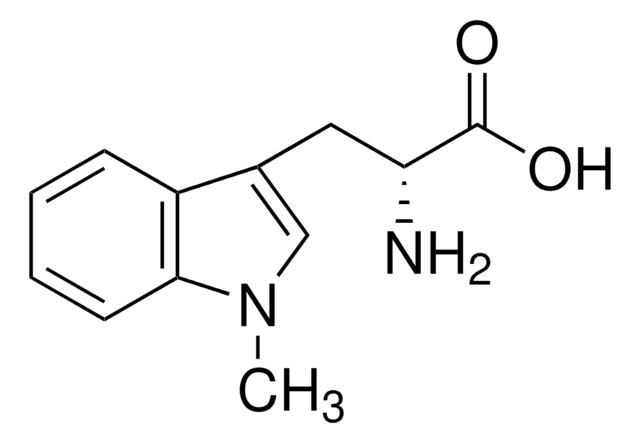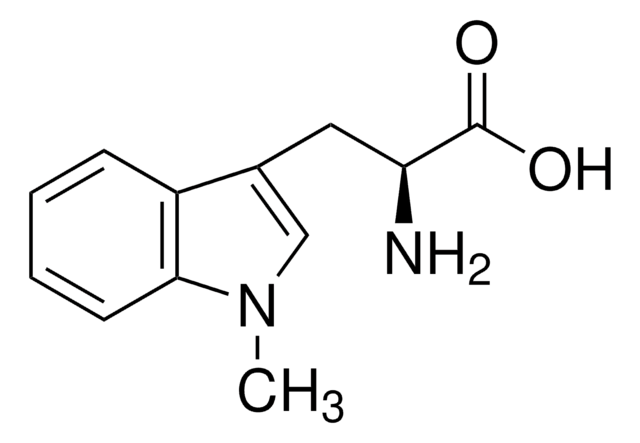Wichtige Dokumente
860646
1-Methyl-DL-Tryptophan
97%
Synonym(e):
1-Methyl-DL-tryptophan, 1-Methyltryptophan, 2-Amino-3-(1-methyl-1H-indol-3-yl)propanoic acid, 2-Amino-3-(1-methyl-1H-indol-3-yl)propanoicacid, 2-Amino-3-(1-methylindol-3-yl)propanoic acid, DL-1-Methyltryptophan, N′-Methyl-DL-tryptophan
About This Item
Empfohlene Produkte
Qualitätsniveau
Assay
97%
Form
solid
mp (Schmelzpunkt)
250 °C (dec.) (lit.)
Funktionelle Gruppe
amine
carboxylic acid
SMILES String
Cn1cc(CC(N)C(O)=O)c2ccccc12
InChI
1S/C12H14N2O2/c1-14-7-8(6-10(13)12(15)16)9-4-2-3-5-11(9)14/h2-5,7,10H,6,13H2,1H3,(H,15,16)
InChIKey
ZADWXFSZEAPBJS-UHFFFAOYSA-N
Verwandte Kategorien
Anwendung
Lagerklassenschlüssel
11 - Combustible Solids
WGK
WGK 3
Flammpunkt (°F)
Not applicable
Flammpunkt (°C)
Not applicable
Persönliche Schutzausrüstung
Eyeshields, Gloves, type N95 (US)
Hier finden Sie alle aktuellen Versionen:
Besitzen Sie dieses Produkt bereits?
In der Dokumentenbibliothek finden Sie die Dokumentation zu den Produkten, die Sie kürzlich erworben haben.
Kunden haben sich ebenfalls angesehen
Unser Team von Wissenschaftlern verfügt über Erfahrung in allen Forschungsbereichen einschließlich Life Science, Materialwissenschaften, chemischer Synthese, Chromatographie, Analytik und vielen mehr..
Setzen Sie sich mit dem technischen Dienst in Verbindung.













